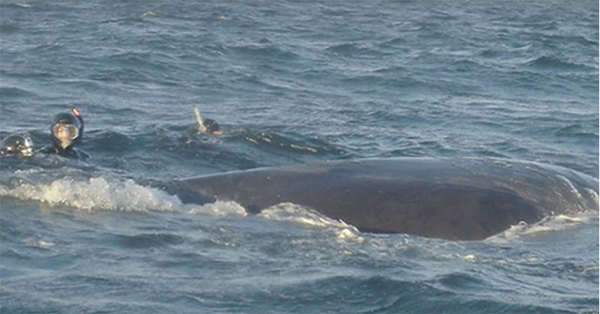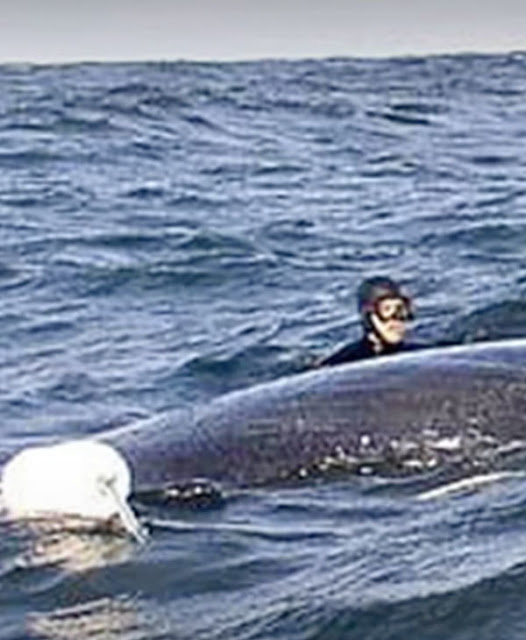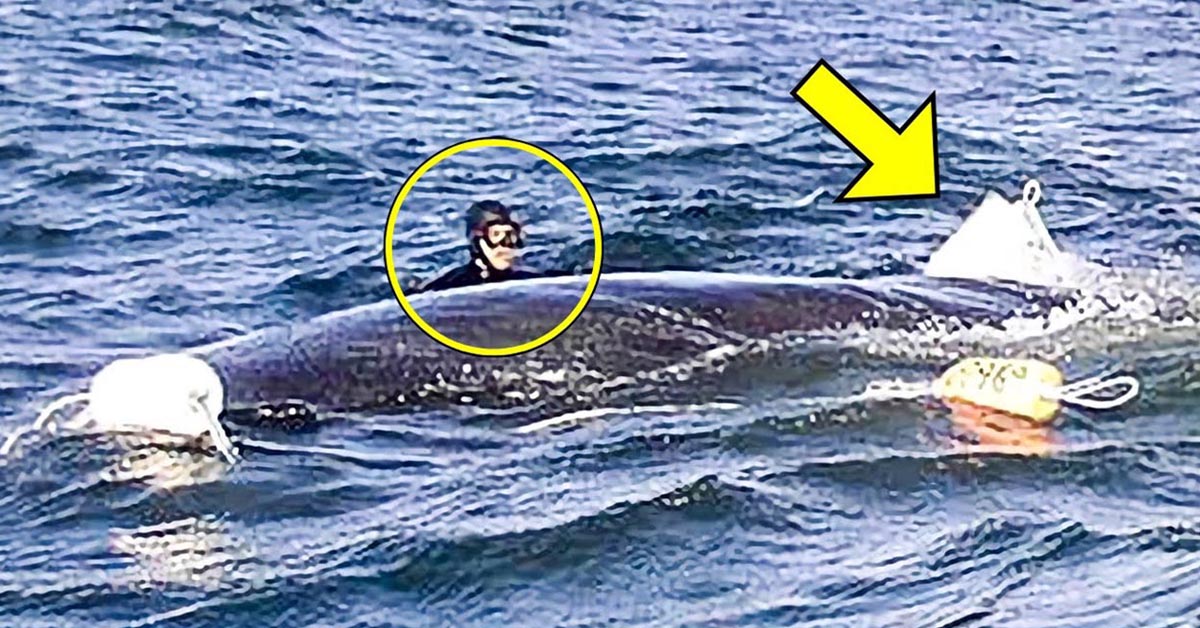A group of volunteers and a professional diver named James Moskito were working in the Farallon Islands, off San Francisco’s coast.
He spotted a humpback whale acting strangely at the water’s surface.
James watched the whale, and it became more and more clear that something was wrong. Whales often only come to the surface to breathe for a short while.
The whale took a breath, stood up, raised one eye above the water’s surface, and turned to face me. James said, “It just stayed there, and I could tell it was staring at me.”

James chose to approach the whale by swimming there.
He put his palm over the creature’s eye and murmured, “I’m here to help you.” I won’t hurt you in any way.
James then swam around to the whale’s other side and was shocked to see what he saw.
On the whale’s tail, a 3,000-pound anchor was secured.
James and the other daring divers spent hours meticulously laboring to free the wonderful animal from the mile-long chain that was around it and pulling it down.
The crew struggled for a while before finally succeeding.
The whale circled James, swimming figure eights around him.
It brushed against him after that, as though to thank him.
Have you ever wondered how breathing whales sleep? In contrast to humans, humpback whales must consciously remind themselves to breathe, even while they are asleep.
According to Animal Planet, whales presumably shut off half of their brains as they sleep to remain awake enough to breathe.

The men’s dedication and diligence in saving this wonderful animal amazes me.
Some people might find James’ conversation with the whale strange. But whales have feelings, and they might understand more than we think.
According to study from the Mount Sinai School of Medicine in New York, whales and humans and other primates have the same specialized brain cells involved in processing emotions.
Therefore, we can confidently assert that the humpback whale was grateful for all of the aid it received. If so, please let others know about this wonderful animal rescue!



